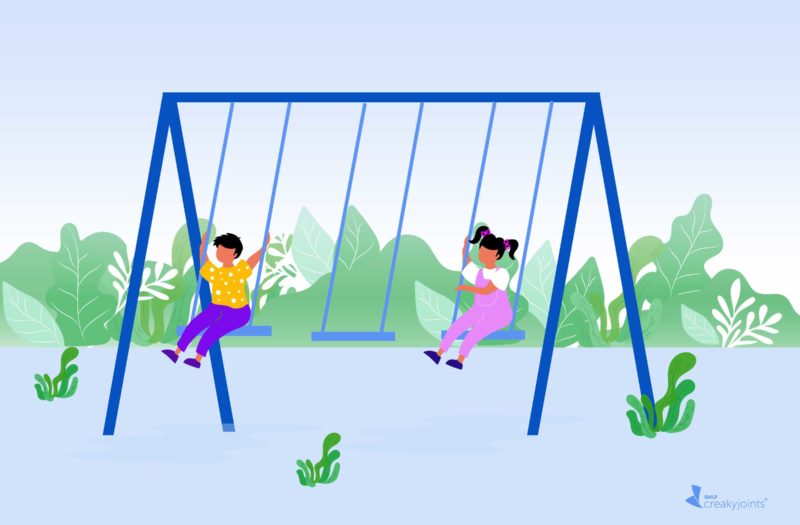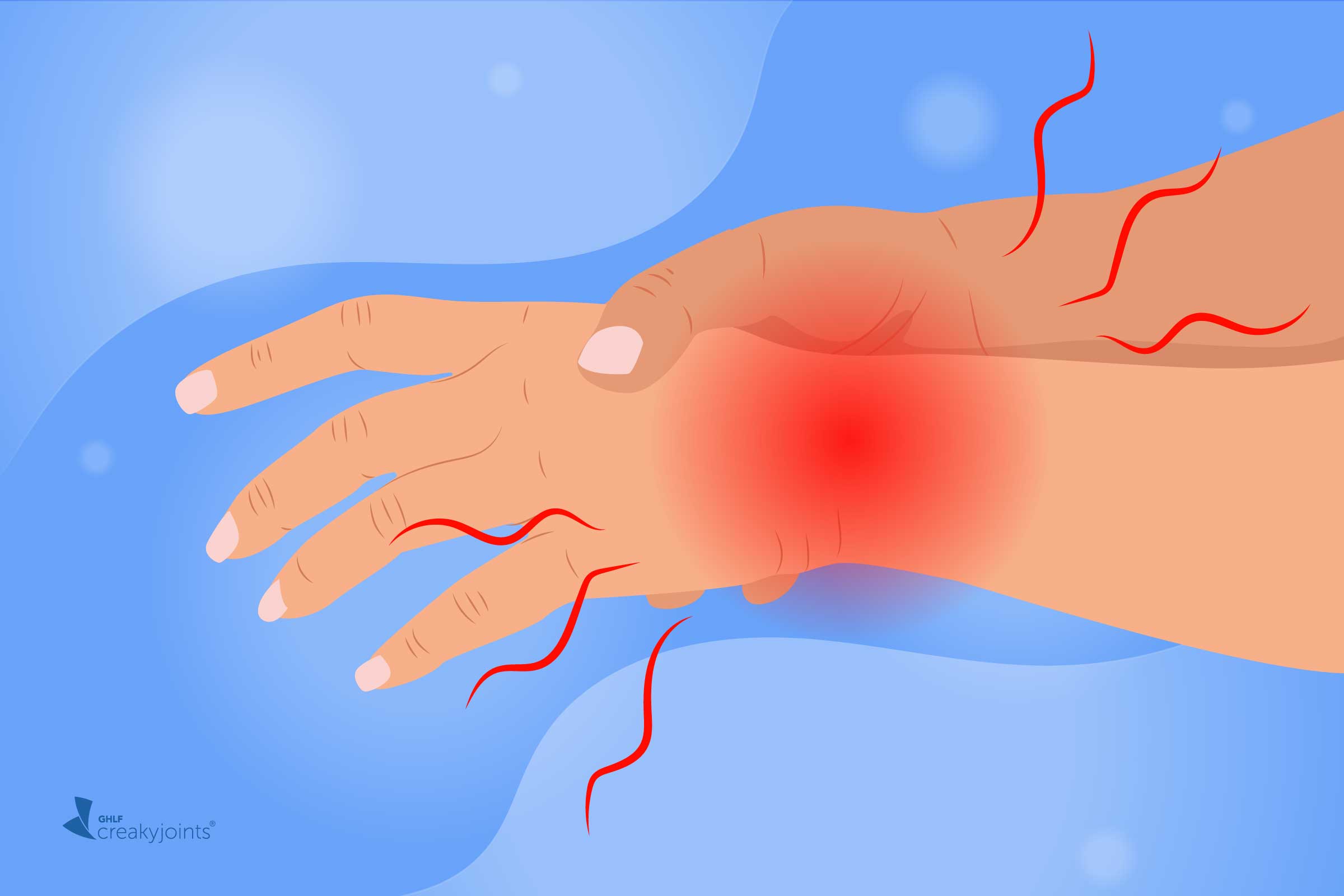Learn more about our FREE COVID-19 Patient Support Program for chronic illness patients and their loved ones.


If you’re a parent, you know just how challenging it can be to find answers to your child’s many questions during the COVID-19 pandemic. Perhaps one of the most difficult questions to answer: “Can I play at my friend’s house yet?”
What once may have been a routine social activity has become a difficult decision during the pandemic — and is even more concerning as the fall approaches and temperatures will start to drop. After all, you want your child to be able to see their friends and socialize, but how risky is that for your family? The matter gets even more complicated when you’re living with a condition that puts you in a high-risk group for COVID-19 complications.
Here’s what to keep in mind when considering playdates for your child, and how to mitigate your family’s risk if you do decide to set one up.
Indoor Playdate Risks During COVID-19
The U.S. Centers for Disease Control (CDC) has made it clear: Indoor playdates are risky right now. The more people your child interacts with, and the longer those interactions last, the higher the risk of COVID-19 spread.
Although guidelines recognize that interacting with friends can be a healthy way for kids to cope with the stress of the COVID-19 pandemic, limiting close contact with those outside of your household is currently one of the most effective ways to slow the spread of COVID-19.
COVID-19 spreads when an infected person coughs, sneezes, or talks, and their respiratory droplets infect people nearby, per the CDC. Those who are in close contact for a prolonged period are at higher risk. COVID-19 may also spread when someone touches a surface or object (like a toy) that has the virus on it, then touches their mouth, nose, or eyes.
When it comes to playdates for children, the CDC notes three tiers of risk:
Lowest Risk: Children connect with friends virtually (say, by video chats or phone calls) and have no in-person playdates.
Medium Risk: Children have infrequent playdates with the same family or friend who is also practicing everyday preventive measures, and maintain a distance of six feet from each other during the playdate. These playdates should be held outdoors, as indoor spaces are riskier than outdoor spaces.
Highest Risk: Children have frequent indoor playdates with several friends or families who are not practicing everyday preventive measures, and children do not maintain a distance of six feet from each other.
Having playdates indoors is considered more risky than outdoor play because it may be more difficult to keep children socially distanced inside, and there is also less ventilation.
Better ventilation of spaces significantly lowers the airborne time of respiratory droplets, per a May 2020 study published in The Lancet Respiratory Medicine. These respiratory droplets are produced when an individual speaks or coughs, and can contain viral particles that remain infectious in aerosols (tiny droplets suspended in the air) for three hours.
“Indoor playdates are strongly discouraged at this point,” says Ashlesha Kaushik, MD, medical director of pediatric infectious diseases at UnityPoint Health in Sioux City and Iowa American Academy of Pediatrics (IA AAP) board member. “The AAP suggests that kids connect with friends virtually so they’re physically distancing, but mentally and emotionally remaining connected.”
How Children Spread COVID-19
The ways in which children spread and are affected by COVID-19 has been a big topic of discussion as schools wrestle with the decision of when to resume in-person learning. However, there is still much to be learned about the role children play in the spread of the virus.
“So far, the data suggests that adults are the main carriers of the disease,” says Dr. Kaushik. “Children don’t seem to be transmitting it as much. At the same time, healthy children do not develop symptoms as much as healthy adults do.”
Children under the age of 10 were about half as likely as adults to spread the virus to others in a July 2020 study of nearly 65,000 people in South Korea. This could be because they exhale less air in general, exhale air closer to the ground, or socialize less outside of school than older kids, though the exact reason is still unclear. That said, those ages 10 to 19 can spread the virus at least as efficiently as adults.
“Given the high infection rate within families, personal protective measures should be used at home to reduce the risk for transmission,” note the researchers.
Because researchers traced contacts of children who felt unwell, it’s still uncertain how efficiently asymptomatic children spread the virus.
“Children in particular may not may not exhibit symptoms of COVID-19,” says Brian Lima, MD, a cardiac surgeon who regularly works with chronic illness patients at the Sandra Atlas Bass Heart Hospital at North Shore University Hospital in New York. “This makes the risk of transmission that much more difficult to estimate.”
A rare, serious condition called multisystem inflammatory syndrome (MIS-C) that’s linked to COVID-19 has also been reported in children and some teenagers. MIS-C causes inflammation in parts of the body like the heart, blood vessels, kidneys, brain, digestive system, skin, or eyes, per the Mayo Clinic.
Many children with MIS-C test negative for a current infection with the virus that causes COVID-19, but several have been infected with it in the past and have positive antibody test results. Although most children who get MIS-C eventually recover with medical care, it can be life-threatening.
What If Your Child Is High Risk for COVID-19?
While children have been less affected by COVID-19 compared to adults, children with certain conditions may be at increased risk for severe illness, according to the CDC. These include:
- Children who are medically complex
- Children who have serious genetic, neurologic, metabolic disorders, and with congenital (since birth) heart disease
- Children with obesity
- Children with diabetes
- Children with asthma and chronic lung disease
- Children with immunosuppression
Because of this, you may need to take extra precautions to limit risk of exposure if your child has an underlying condition.
“As a pediatric ICU specialist, I’ve taken care of many kids who have been very sick with COVID-19 infection or multisystem inflammatory syndrome,” says James Schneider, MD, chief of pediatric critical care medicine at Northwell Health in New York. “They’re unfortunately not spared, and they’re not considered safe just because they’re kids.”
When in doubt, always reach out to your child’s pediatrician for best practices and risk mitigation strategies specific to your child’s condition and the current level of spread in your community.
How to Reduce Risk of COVID-19 During Playdates
If you do decide to set up a playdate for your child, the CDC recommends key strategies to keep your family safe:
- Have children 2 years and older wear a cloth face covering over their nose and mouth
- Have children maintain six feet of distance from each other during the playdate
- Have children clean their hands often using soap and water or alcohol-based hand sanitizer
- Stick to infrequent playdates with the same family or friend who’s also practicing preventive measures
- Avoid people or children who are coughing, sneezing, or showing other signs of being sick
- Hold playdates outdoors instead of indoors
- Make sure your child is up to date on well-child visits and immunizations
One way to translate social distancing to your child might be to make a “no-contact games” rule — in other words, games like tag or basketball should not be allowed.
“They shouldn’t be playing games that require any type of touching,” says Dr. Schneider. Better activities for social distancing might include bike riding, roller skating, cornhole, or hopscotch.
Be sure to also thoroughly sanitize any equipment (balls, bats, etc.) that your child uses when playing with a friend, and help your child clean up immediately after the playdate.
“When they get back in the car after playing, they should quickly sanitize their hands,” says Dr. Kaushik. “Then at home, they should probably take a shower and change all of their clothes.”
The CDC also recommends taking extra precautions if someone in your home has an increased risk for severe illness from COVID-19. Normally, your child should be separated from those individuals. However, if you’re the one in a high-risk group, it may be necessary to limit your child’s participation in moderate to high-risk activities like playdates.
“The safest alternative would be to avoid playdates altogether, but if they’re an absolute must, avoid indoor environments,” says Dr. Lima.
Speak to your child’s doctor or your own doctor for help assessing risk level of complications due to COVID-19, and for more safety precautions that may be specific to your particular city or condition.
Get Free Coronavirus Support for Chronic Illness Patients
Join the Global Healthy Living Foundation’s free COVID-19 Support Program for chronic illness patients and their families. We will be providing updated information, community support, and other resources tailored specifically to your health and safety. Join now.
Frequently Asked Questions. Coronavirus Disease 2019 (COVID-19). The U.S. Centers for Disease Control & Prevention. July 15, 2020. https://www.cdc.gov/coronavirus/2019-ncov/faq.html.
Help Stop the Spread of COVID-19 in Children. Coronavirus Disease 2019 (COVID-19). The U.S. Centers for Disease Control and Prevention. July 21, 2020. https://www.cdc.gov/coronavirus/2019-ncov/daily-life-coping/children/protect-children.html.
How COVID-19 Spreads. Coronavirus Disease 2019 (COVID-19). The U.S. Centers for Disease Control and Prevention. June 16, 2020. https://www.cdc.gov/coronavirus/2019-ncov/prevent-getting-sick/how-covid-spreads.html.
Interview with Ashlesha Kaushik, MD, medical director of pediatric infectious diseases at UnityPoint Health in Sioux City and Iowa American Academy of Pediatrics (AAP) board member
Interview with Brian Lima, MD, a cardiac surgeon who regularly works with chronic illness patients at the Sandra Atlas Bass Heart Hospital at North Shore University Hospital in Manhasset, New York
Interview with James Schneider, MD, chief of pediatric critical care medicine at Northwell Health in New York
Multisystem inflammatory syndrome in children (MIS-C) and COVID-19. Mayo Clinic. June 12, 2020. https://www.mayoclinic.org/diseases-conditions/coronavirus/in-depth/mis-c-in-children-covid-19/art-20486809.
Park YJ, et al. Contact Tracing during Coronavirus Disease Outbreak, South Korea, 2020. Emerging Infectious Diseases. July 16, 2020. doi: https://doi.org/10.3201/eid2610.201315.
Somsen GA, et al. Small droplet aerosols in poorly ventilated spaces and SARS-CoV-2 transmission. The Lancet Respiratory Medicine. May 27, 2020. doi: https://doi.org/10.1016/S2213-2600(20)30245-9.





